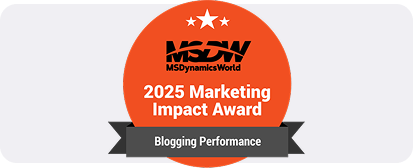The 9 Best ERP Software for Real Estate in Canada | 2025
Have you ever wondered how some real estate companies manage everything so smoothly while others struggle to keep up? It’s actually all about using the right tools, and one of the biggest differentiators today is real estate ERP. Think of it as a smart business assistant, working behind the scenes to connect all the little pieces that make up your real estate operations.
Now, why should this matter to you? Well, according to industry trends and market reports, more real estate businesses in Canada are turning to cloud ERP solutions for their ease and affordability. And in a thriving market like Toronto, having the best real estate ERP is a necessity to stay competitive.
In this blog, we will discuss what a real estate ERP system really is, why it's becoming essential in Canada, what features matter, and how to choose the best ERP for real estate industry, especially if you're thinking about cloud ERP.
What is Real Estate ERP?
Enterprise resource planning (ERP) software is used across industries. In the real estate sector, ERP is implemented to centralize and manage property-related operations at scale. It acts as a central hub where all your key business activities are concentrated in a single spot. This comprises management of property listings, monitoring of sales and leads, and financial operations, as well as upholding of good relations with the clients using real estate CRM modules.
Compared to the generic business tools, the real estate ERP systems are customized to address the particular issues that property companies have. They eliminate repetitive tasks, reduce errors due to manpower, and offer real-time analytics that assist you in making wiser decisions in a short time. Whether you’re managing properties across Toronto or scaling operations across Canada, an ERP system for real estate helps streamline processes, increase efficiency, and support growth, all under one unified system.
9 Best Real Estate ERP Software
Here’s a list of some of the best real estate ERP software designed to meet the diverse needs of the real estate industry.
Microsoft Dynamics 365
Microsoft Dynamics ERP is well-suited for real estate companies aiming for unified operations and customer management. In addition, Business Central for SMBs and Finance & Operations (now Dynamics 365 Finance and Supply Chain Management) for large real estate firms.
Features:
- Financial and Operations Management
- Customer Relationship Management (CRM)
- Marketing and Sales Automation
- Service Management
- AI and Business Intelligence
Advantages:
- Seamless integration with Microsoft tools like Office 365
- Modular and scalable
- Strong customization and automation features
- Cloud and on-premises options available
Disadvantages:
- Can be complex to set up and customize
- Licensing costs can be high for larger implementations
- Requires technical expertise for optimal use
Oracle NetSuite
Oracle NetSuite is a cloud-based ERP platform widely used across industries, including real estate. It offers comprehensive financial management, CRM, inventory, and project management tools tailored for growing businesses. It is known for strong financials and multi-entity capabilities, especially in commercial real estate.
Features:
- Financial Management & Accounting
- Customer Relationship Management (CRM)
- Project Management
- Order & Inventory Management
- Business Intelligence & Analytics
- Customizable dashboards and reports
Advantages:
- Cloud-based with high scalability
- Real-time data access across all modules
- Strong financial management capabilities
- Flexible customization options
Disadvantages:
- Higher licensing costs, particularly for small businesses
- Implementation can be complex and time-consuming
- Requires specialized training for full utilization
Also Read: Business Central vs NetSuite
SAP Business ByDesign
SAP Business ByDesign is an integrated cloud ERP solution suitable for mid-market and large enterprises. It helps manage finance, sales, procurement, and project management in a unified system.
Features:
- Financial and Operational Management
- Customer Relationship Management
- Supply Chain and Procurement
- Project System Management
- Analytics & Reporting
Advantages:
- Fully integrated suite of business processes
- Scalable and adaptable for growing businesses
- Cloud deployment reduces hardware costs
- Strong compliance and security features
Disadvantages:
- Can be expensive for smaller firms
- Customization options may require technical expertise
- Users report some complexity in navigating the system
Sage Intacct
Sage Intacct is a cloud-based financial management solution known for strong accounting features, preferred by many real estate companies for financial reporting and automation.
Features:
- Core Financial and Accounting Management
- Revenue Recognition
- Project Accounting
- Multi-entity and multi-currency support
- Custom dashboards and reporting
Advantages:
- Excellent financial and accounting automation
- Easy to use with minimal training
- Strong multi-entity support
- Regular updates and improvements
Disadvantages:
- Lacks extensive CRM or project management features
- Limited industry-specific modules outside finance
- Customization can be costly
Also Read: Sage vs QuickBooks
SAP Business One
SAP Business One is a comprehensive ERP designed for small to medium-sized businesses, including those in real estate. It covers core business functions with a focus on finance and operations.
Features:
- Financial and Accounting Management
- Customer Relationship Management (CRM)
- Purchasing and Inventory Management
- Reporting and Analytics
- Mobile access and integration
Advantages:
- User-friendly interface
- Customizable and scalable
- Good integration with other SAP products
- Cost-effective for small to medium businesses
Disadvantages:
- Less suitable for very large enterprises
- Customization can be complex
- Requires dedicated IT support for implementation
Also Read: Business Central vs SAP Business One
Odoo
Odoo is an open-source ERP with modular architecture, allowing real estate companies to select and customize functionalities as needed. It covers sales, inventory, finance, and more.
Features:
- Sales Management
- Accounting & Finance
- Project Management
- CRM and Marketing Tools
Advantages:
- Highly customizable and flexible
- Cost-effective, especially for startups
- Active open-source community supporting updates
- Multiple modules can be integrated seamlessly
Disadvantages:
- Customization requires technical expertise
- Some modules may lack advanced features
- Support and updates depend on community or paid services
Also Read: Odoo Alternative
Acumatica
Acumatica is a cloud ERP known for its ease of use and mobile access, suitable for small to mid-sized real estate firms. It offers flexible deployment options.
Features:
- Financial Management & Accounting
- Customer Management and CRM
- Project Management
- Inventory & Distribution
- Business Intelligence
Advantages:
- User-friendly and easy to implement
- Flexible licensing and deployment options
- Strong mobile and remote access capabilities
- Supports multiple industries, including real estate
Disadvantages:
- Implementation costs can add up
- Customization and integrations may require technical support
- Some users report limited industry-specific features
Workday
Workday specializes in human capital management and financial management, primarily for larger enterprises. It’s known for its modern interface and powerful analytics.
Features:
- Finance & Accounting Management
- Human Capital Management (HCM)
- Planning and Analytics
- Reporting & Compliance
Advantages:
- Cloud-based with real-time data access
- Intuitive interface and user experience
- Robust data analytics and reporting
Disadvantages:
- High cost makes it less suitable for small businesses
- Custom features may require extensive configuration
- Not typically adopted by real estate firms unless they are very large enterprises focused on HR and finance.
Oracle ERP Cloud
Oracle ERP Cloud offers comprehensive, scalable cloud-based solutions suitable for large real estate firms looking for robust features.
Features:
- Financial Management & Planning
- Risk Management & Compliance
- Procurement and Project Management
- Analytics & Reporting
- Human Resources Management
Advantages:
- Robust, scalable, and globally compliant
- Continuous updates without downtime
- Extensive automation options
Disadvantages:
- High implementation cost
- Needs dedicated IT support for setup and maintenance
- May be more complex than needed for smaller firms
- Note: Each of these systems offers different real estate ERP modules, features and integrations tailored to your needs.
- Next, we’ll delve into the features and benefits of real estate ERP to help you better understand what to look for in the best solution for your company.
Features and Benefits of Real Estate ERP
Features:
Centralized Data Management: All your property data, customer data, transaction-related information, and documents are all managed in one secure location, ensuring easy identification and modification of the data.
Financial Management: Streamlines accounting, invoicing, and budgeting automatically without human error and wasting time.
CRM Integration: It will assist in regulation of customer relationships, lead tracking, and automated marketing campaigns to enhance client engagement.
Project & Property Management: Monitors the life cycle of properties, such as sales, leasing, maintenance, and legal documents.
Reporting & Analytics: Offers real-time reporting and a dashboard to help you to make better decisions and to create better planning.
Automated Workflows: Automates any repetitive processes like notification alerts, approvals, and document management, and it processes everything in the fastest way possible.
Mobile Access: Allows the staff to access the essential data and coordinate tasks wherever they are, which is important in a highly fluctuating market with houses in Toronto.
Benefits:
Improved Effectiveness: Automation of repetitive tasks saves your team some time so that they can pay attention to clients and sales.
Enhanced Accuracy: Eliminates the manual error in financial information, property information, and compliance-related information.
Improved Decision-Making: Rapid and better decisions are made by real-time reporting and analytics.
Scalability: Your real estate ERP can be scaled up by adding more modules and functions and does not need to slow down business as it grows.
Regulatory Compliance: Minimizes legal risks by ensuring that local laws and industry norms are followed.
Customer Satisfaction: Greater levels of customer satisfaction and loyalty are produced by improved communication, quick response, and personalization.
Select the Best ERP Software
Proper ERP selection is a sensitive process that may affect the efficiency of your operations, growth capacity, and general competitive market status.
When selecting the best ERP software for real estate business, you must consider the following major factors:
Business Size and Scale: You need to be sure that the software is suitable for your current business and capable of scaling as your business increases. Solo entrepreneurs may benefit from simpler, cost-effective systems such as Odoo or SAP Business One, whereas large corporations might require more robust platforms like Oracle NetSuite.
Core Business Requirements: Find out what modules you require in your business—financial management, CRM, project management, or property management, and ensure that the software will provide the same.
Customization & Flexibility: Seek systems that can conform to your custom workflows with an additional minimum amount of custom development, delivering a great and faster implementation quality.
Ease of Use & Training: Your team will not need a lot of time to learn and adopt, with little downtime during the transition.
Integration Capabilities: You do not want to be forced to change all of the software programs you currently utilize when switching to an ERP.
Vendor Support & Community: Evaluate what vendor support, training, and updates are available. Troubleshooting and best practices may also be worthwhile resources through a strong user community.
Compliance/Security: Verify that the system is in compliance with the local laws and provides a security system to safeguard sensitive information.
Note: Having an idea of the alternatives will enable you to make the best decision in choosing the best real estate ERP software to use in your organization, either during ERP System vs CRM comparisons.
Choose Dynamic Square
A trusted partner ensures you get the best return on your technology investment and that it aligns with your business goals. That’s where Dynamic Square, a Microsoft Dynamics Partner, comes in, helping your real estate business run at its best.
Covering CRM to financials, we provide end-to-end solutions supported by experts across Canada. We have a team of certified professionals who collaborate with clients and identify their specific needs to come up with customized solutions that streamline workflows, enhance precision, and strengthen growth.
Get in touch with us at +1 778 381 5388 or info@dynamicssquare.ca and allow us to assist you in applying an effective ERP system Implementation to fit your real estate enterprise so that you can concentrate on the move and prosperity.
People Also Ask:
1. What does ERP stand for in property management?
ERP stands for Enterprise Resource Planning. In property management, it helps track leases, manage tenants, handle maintenance, plan budgets, and ensure compliance.
2. What is the best software for real estate management?
Popular real estate management software includes:
- Microsoft Dynamics 365
- Oracle NetSuite
- Sage Intacct
- SAP Business
3. What’s the difference between ERP and CRM in real estate?
In the case of CRM vs ERP, ERP deals with the back-end processes: accounting, leasing, maintenance, and project tracking operations. In contrast, CRM (customer relationship management) deals with a front end: lead tracking, customer relations management, and sales drive.
ERP handles back-end operations: accounting, leasing, maintenance, and project tracking.



